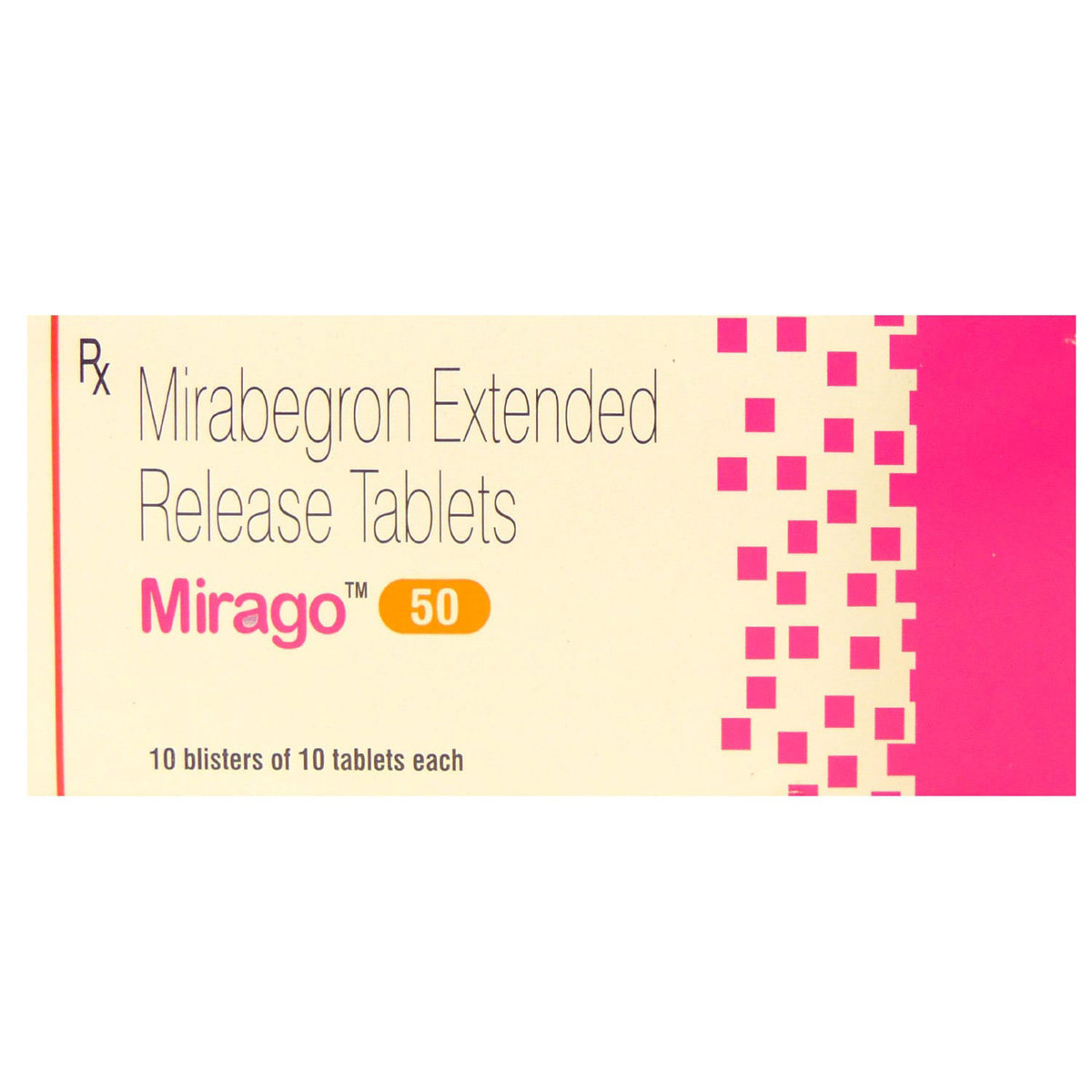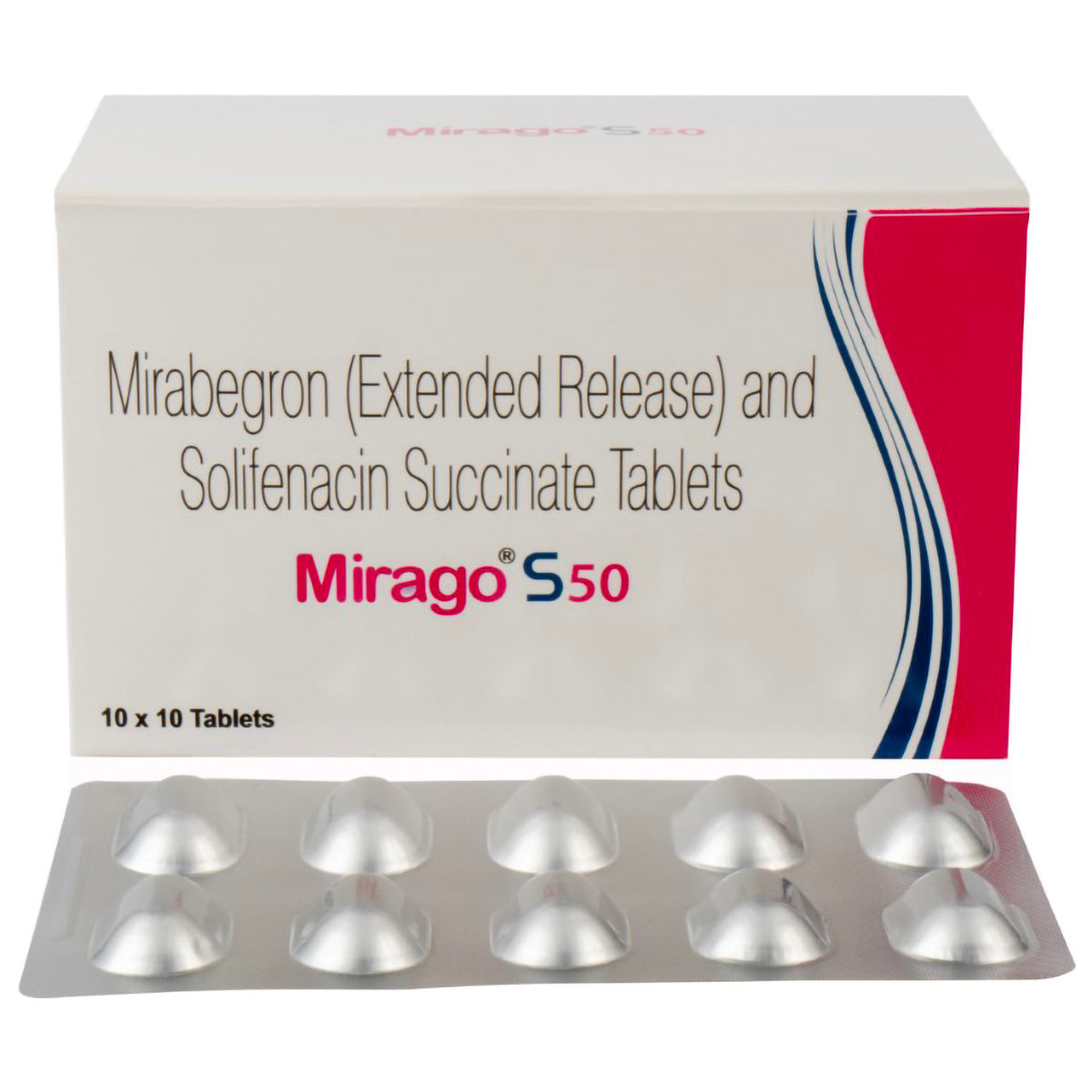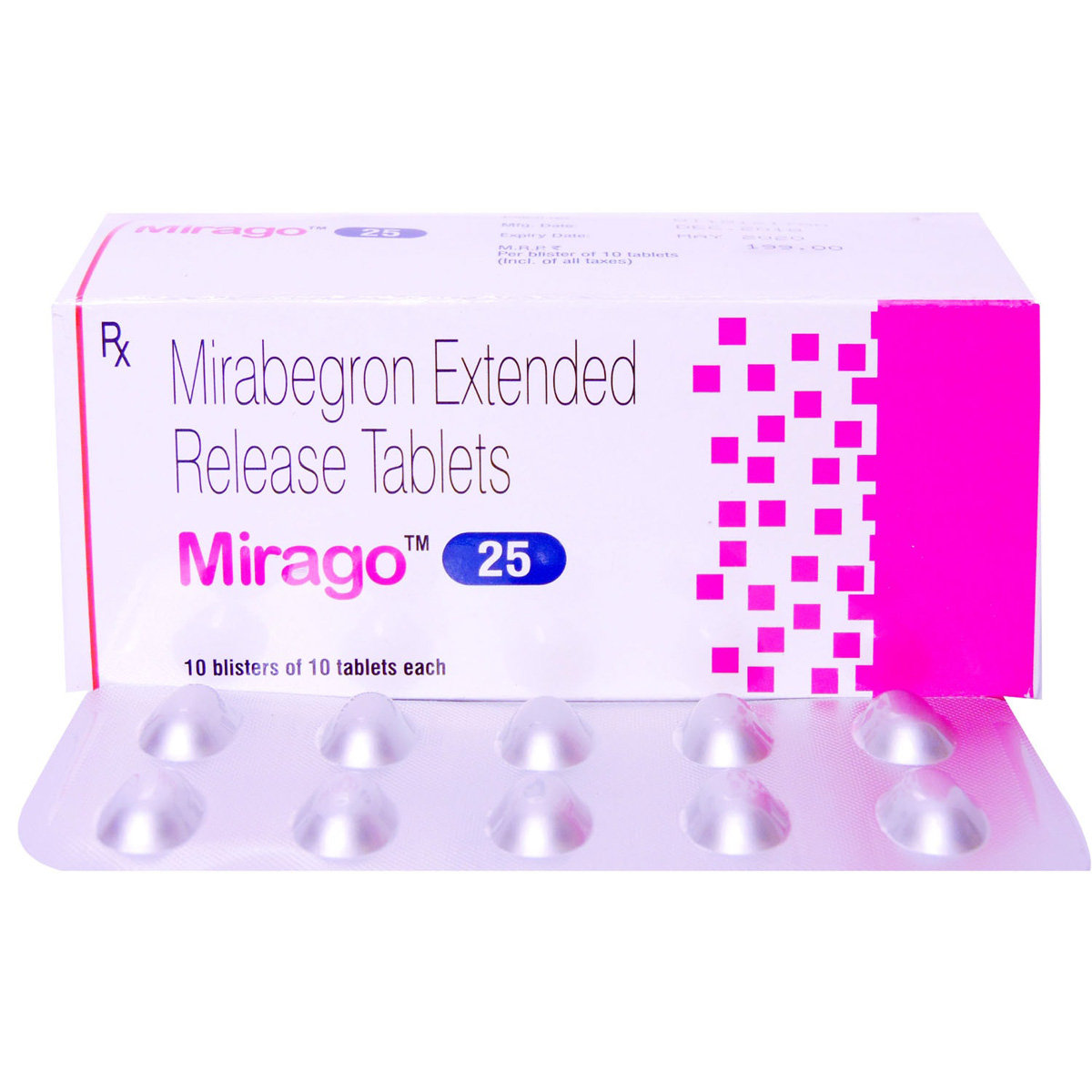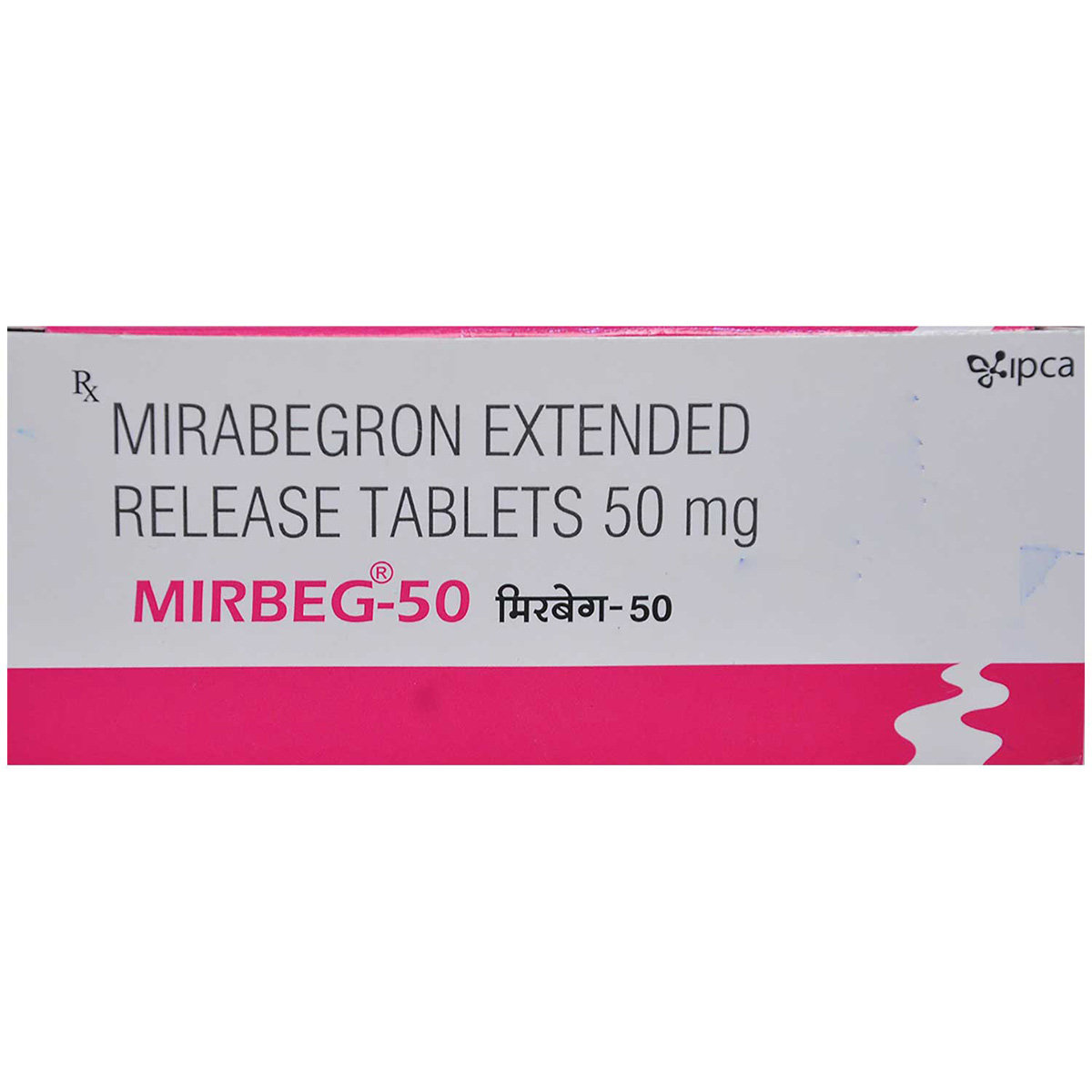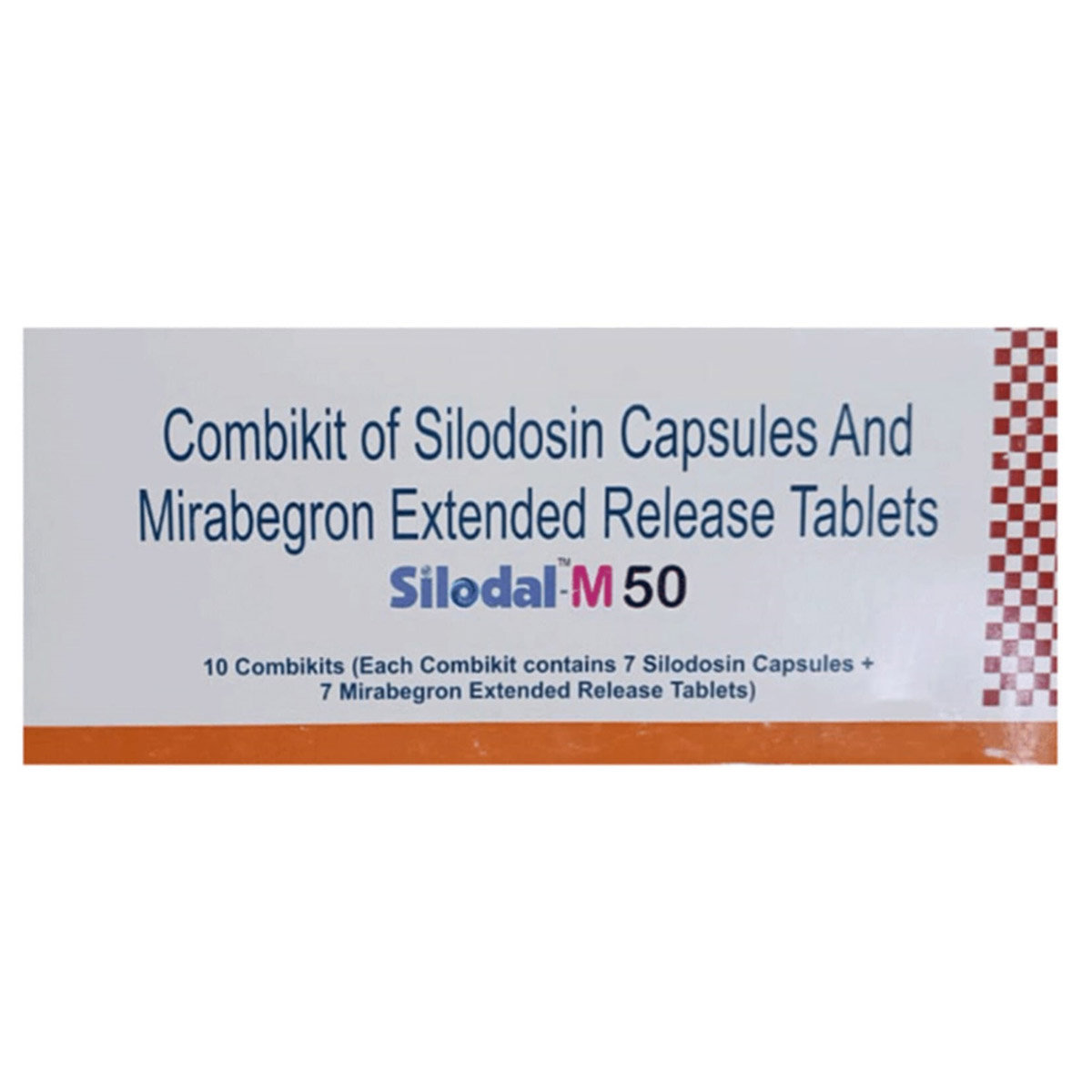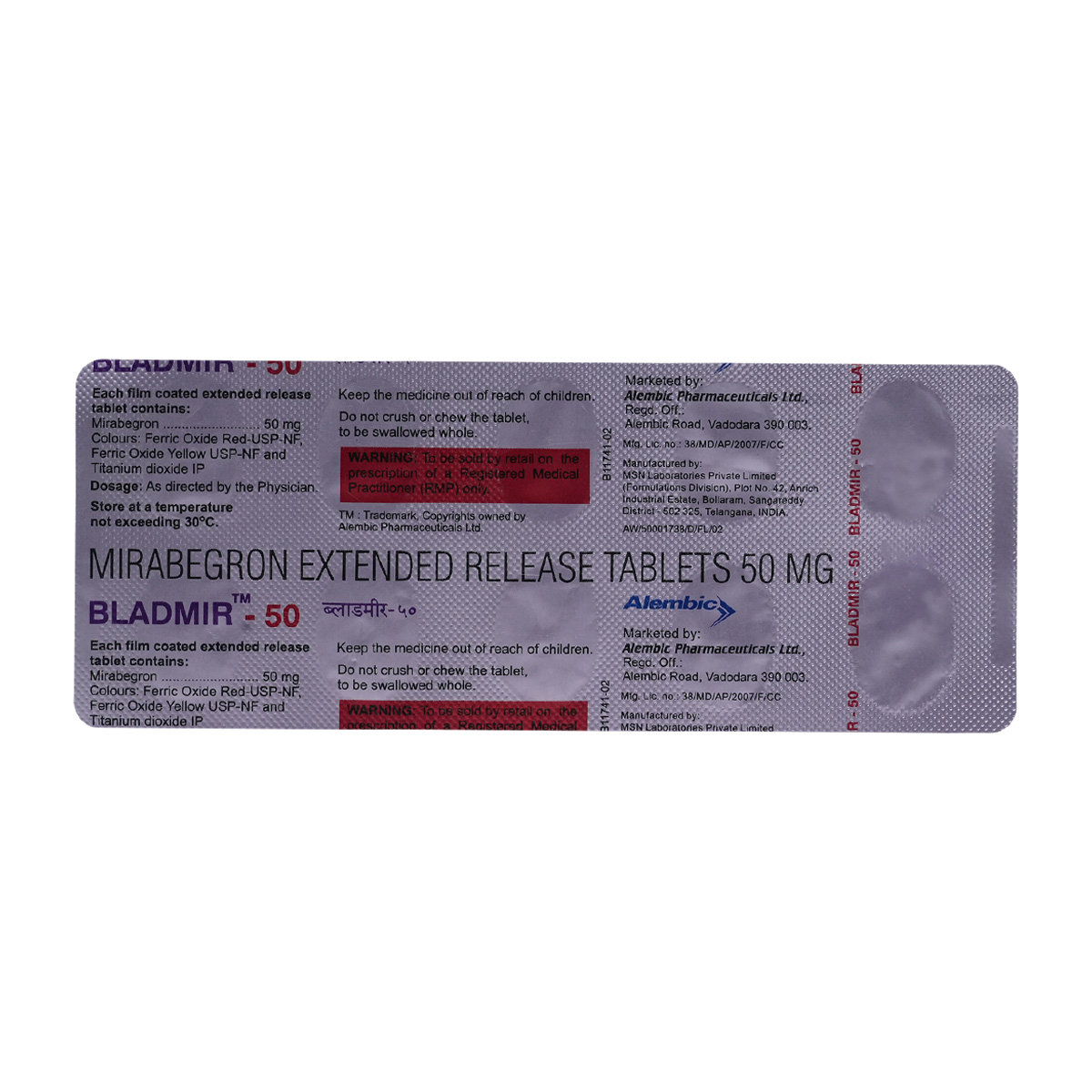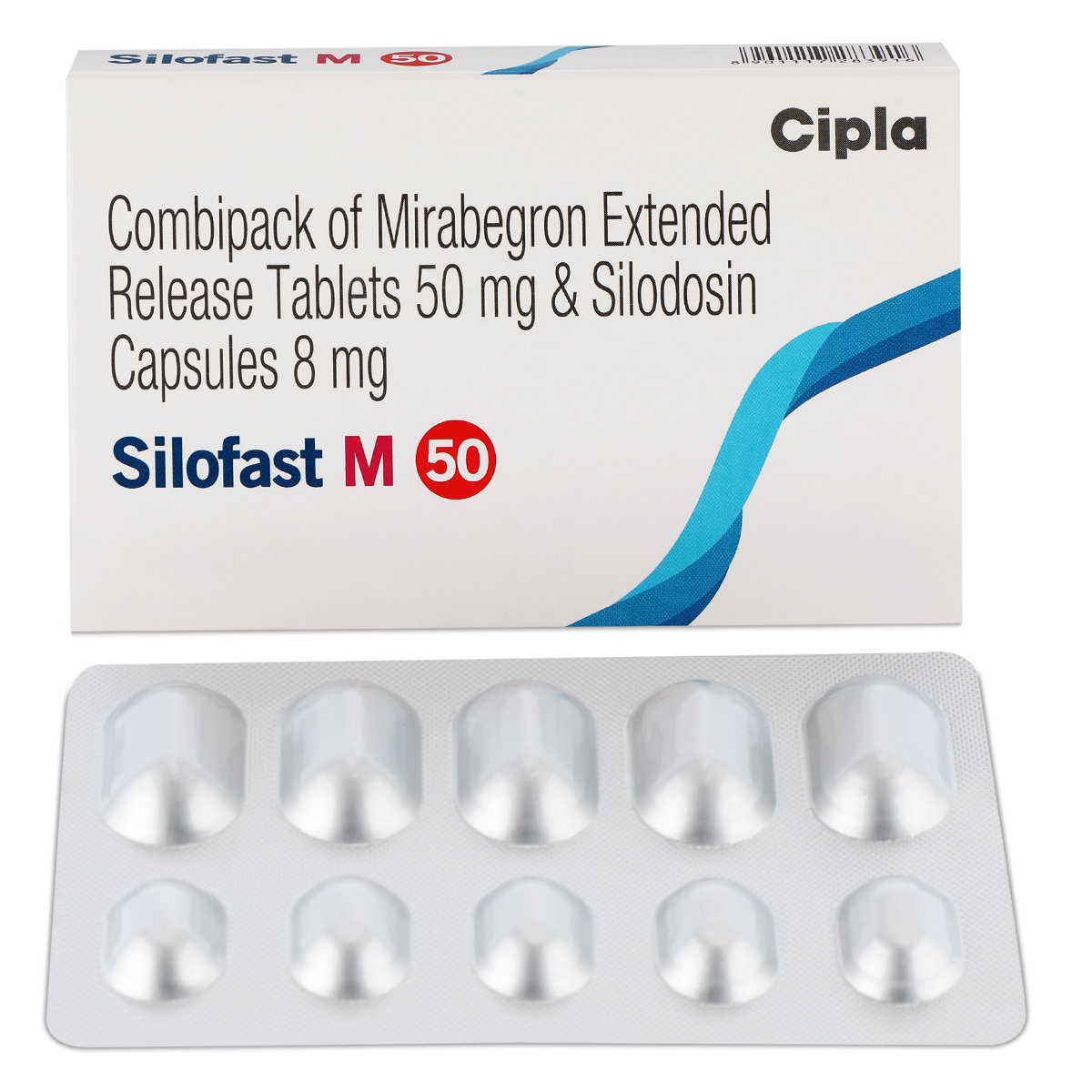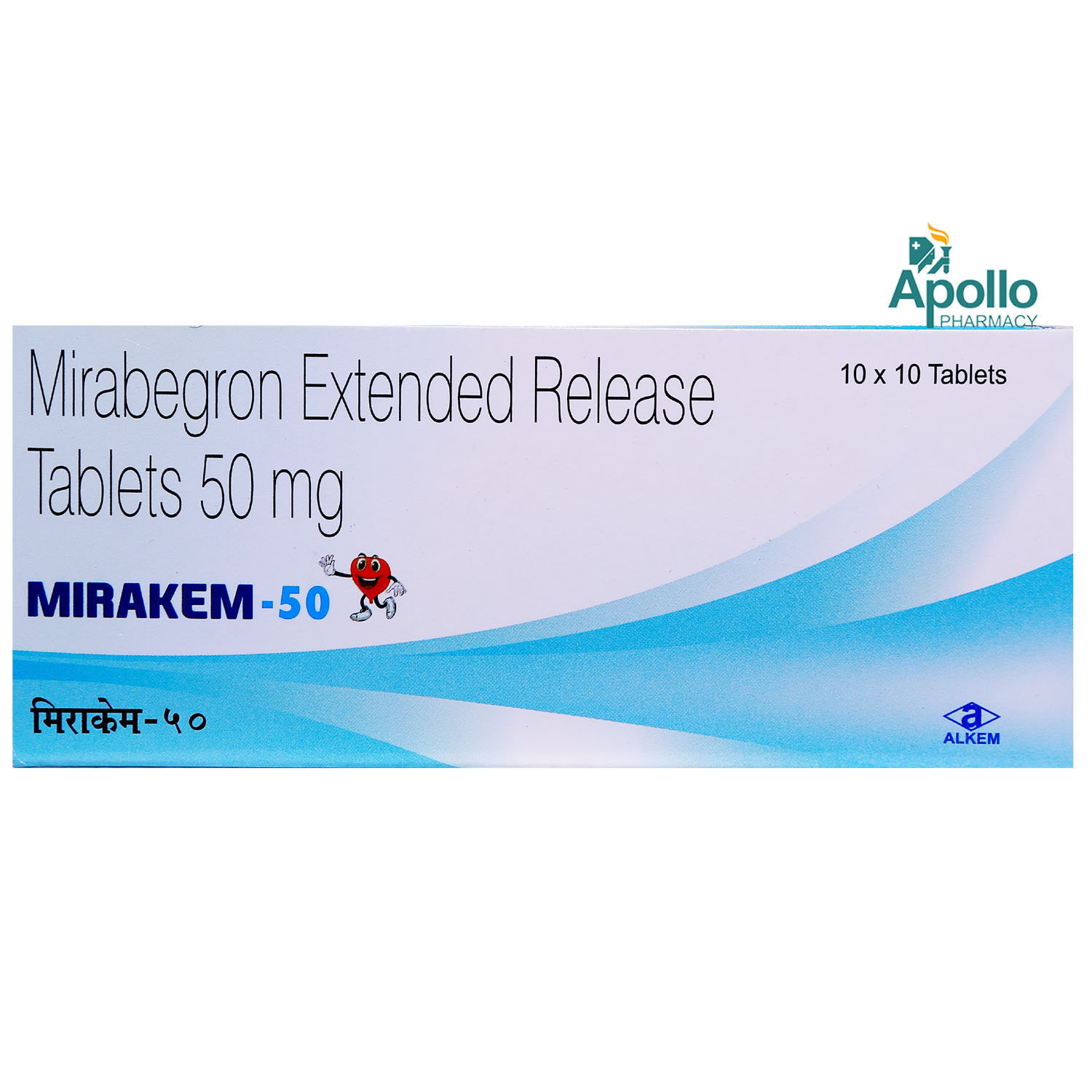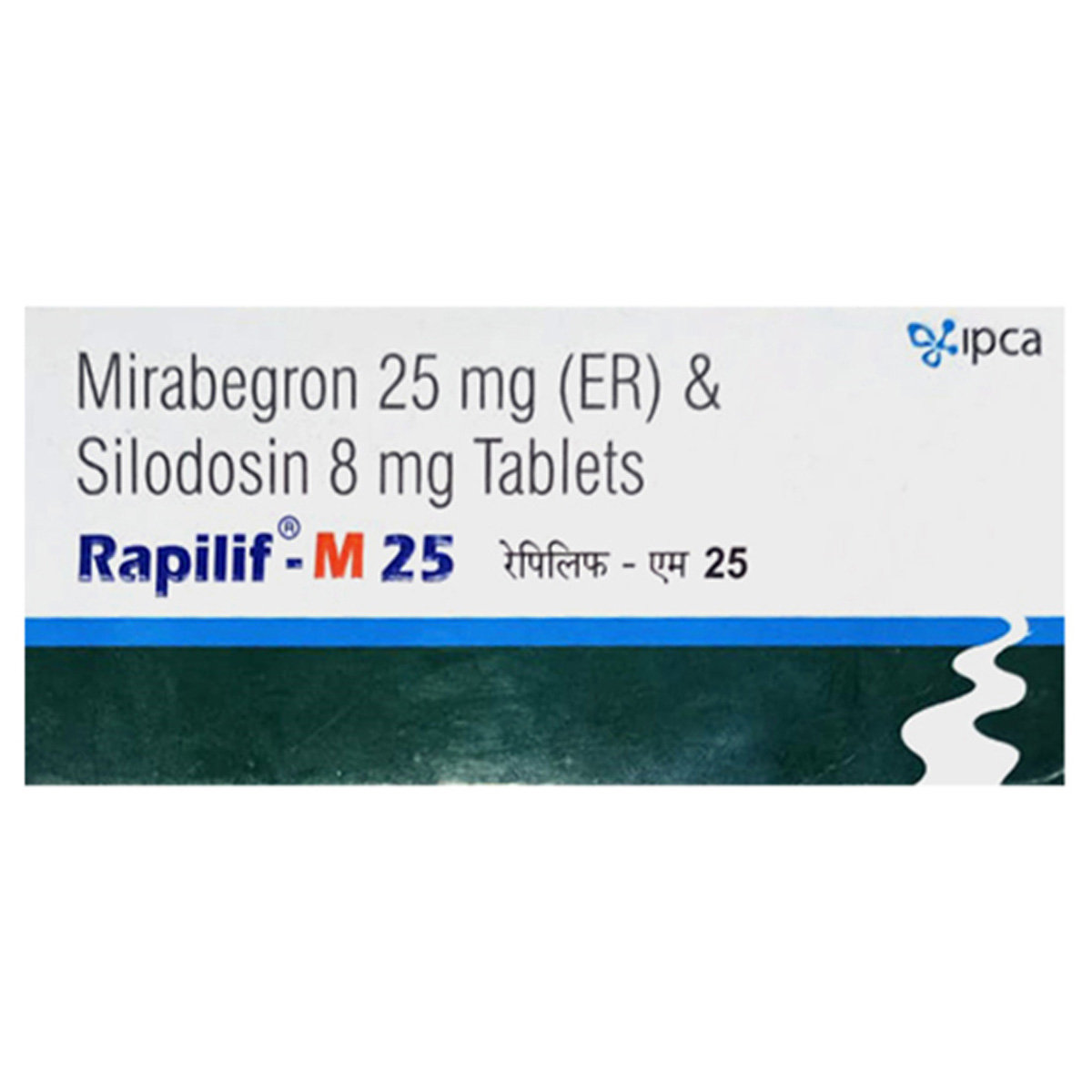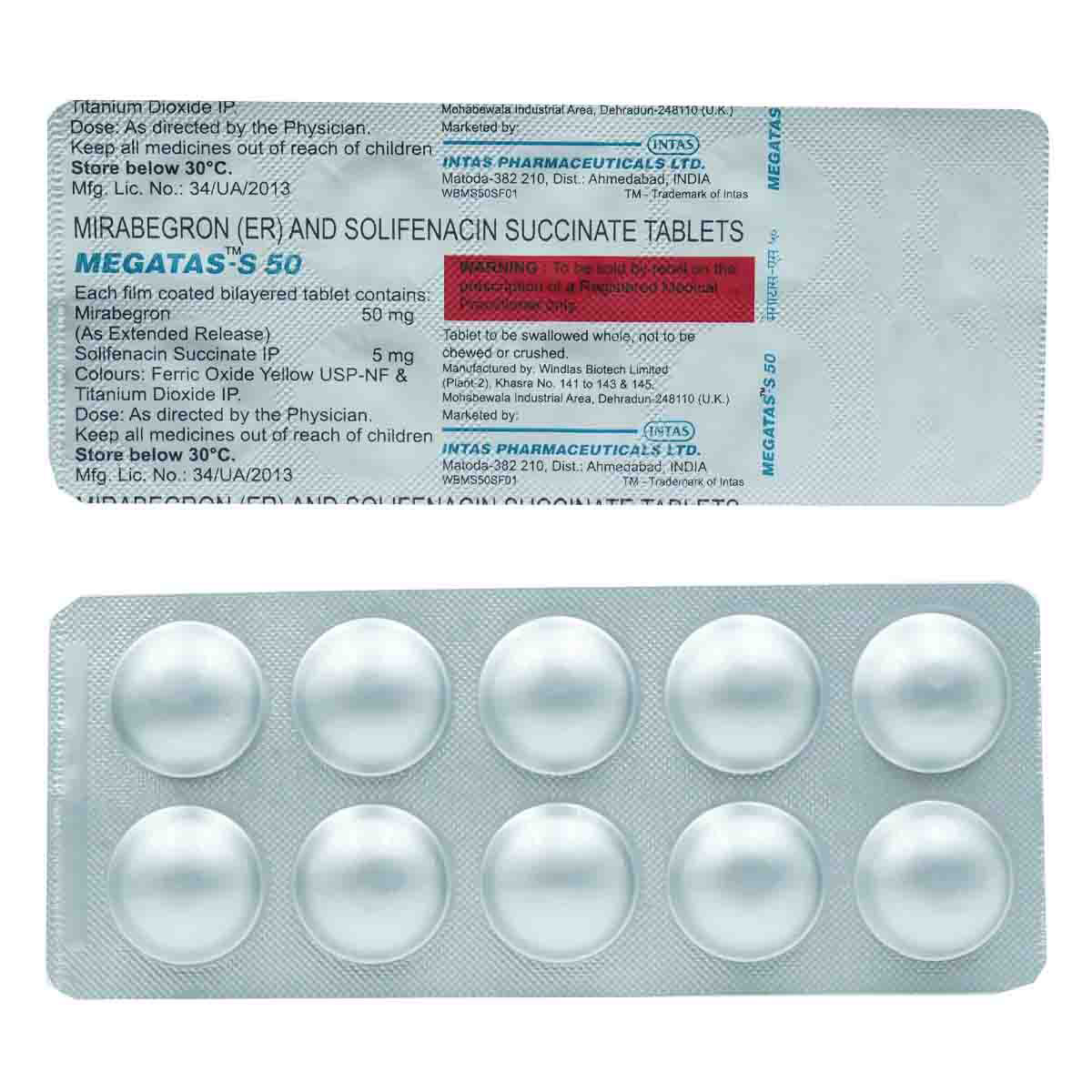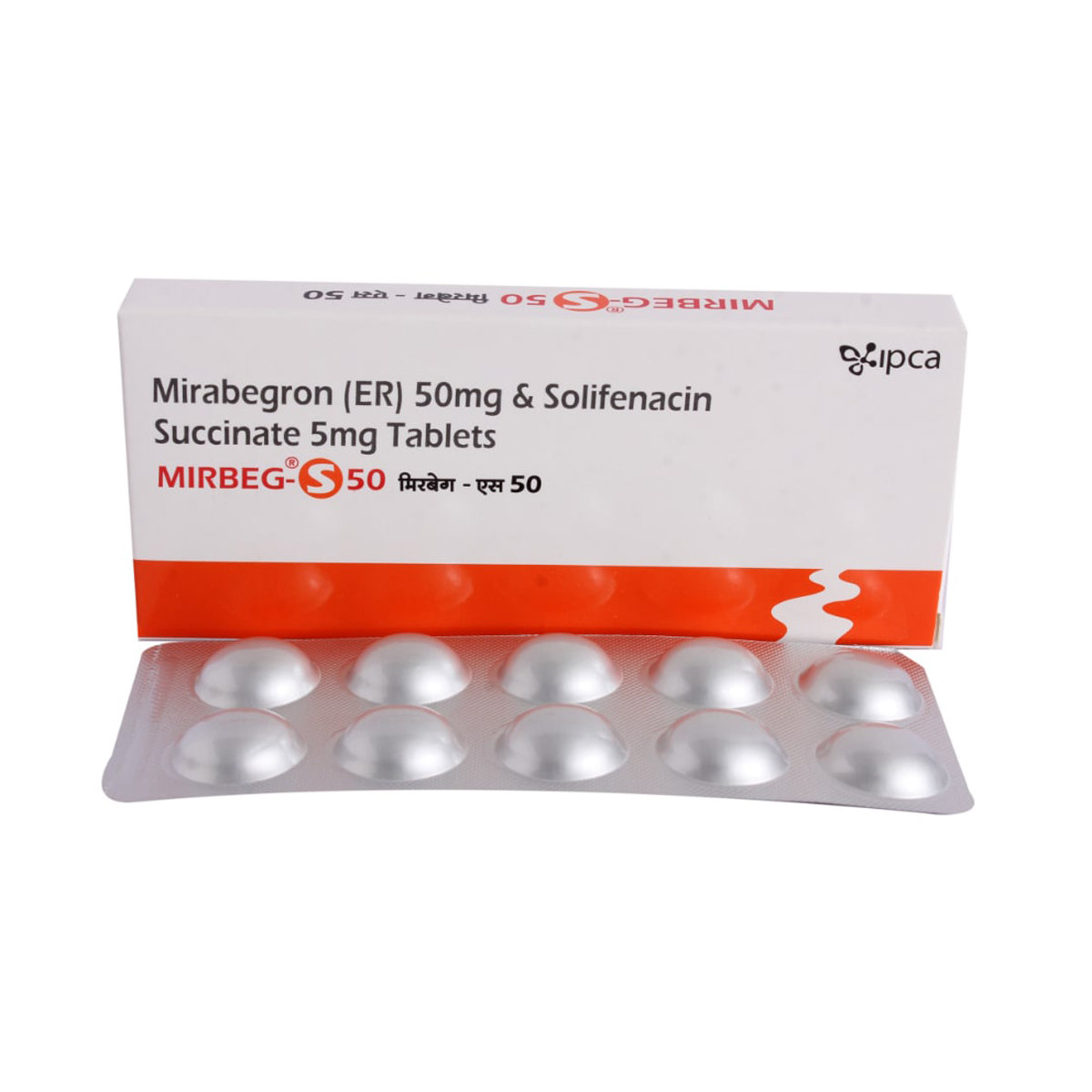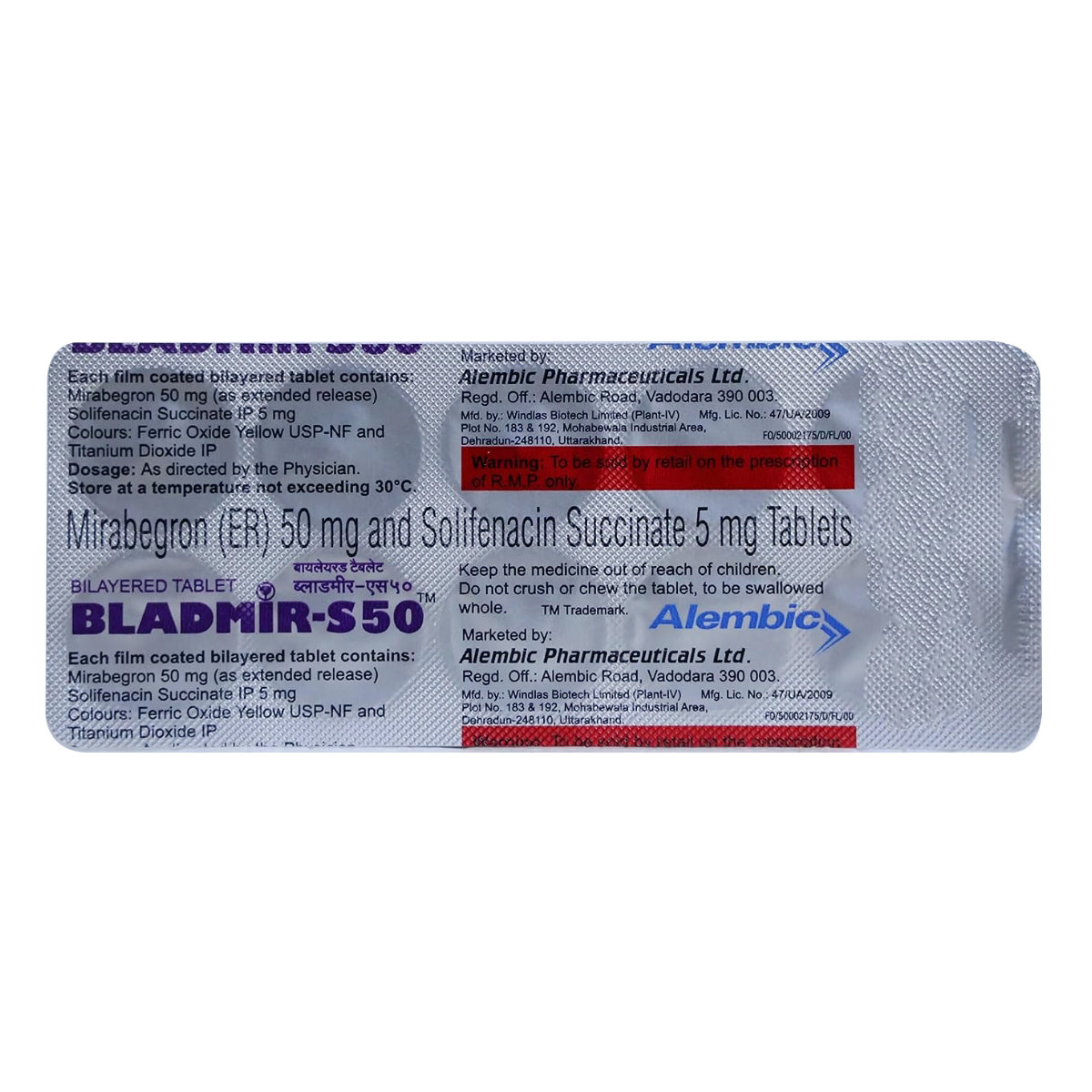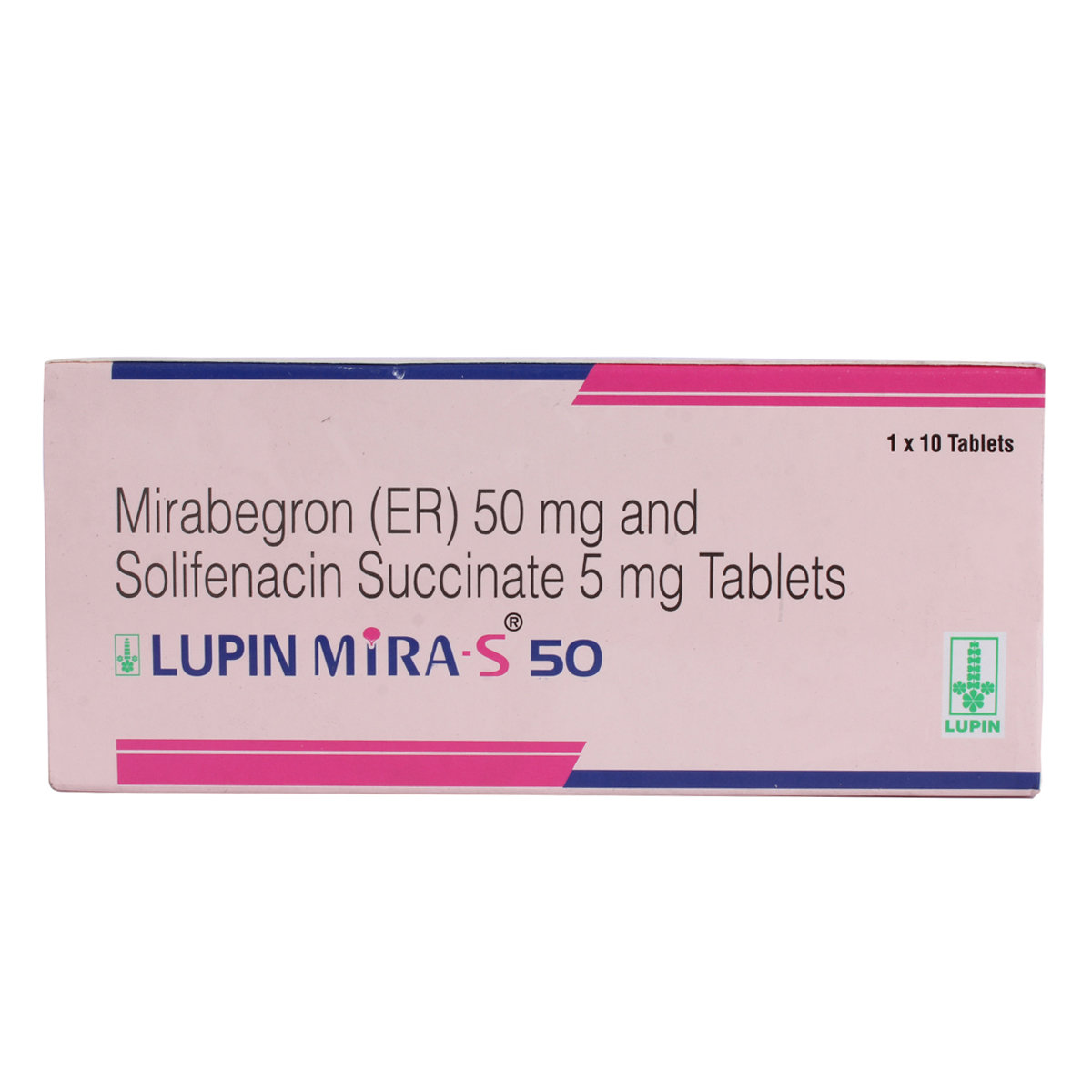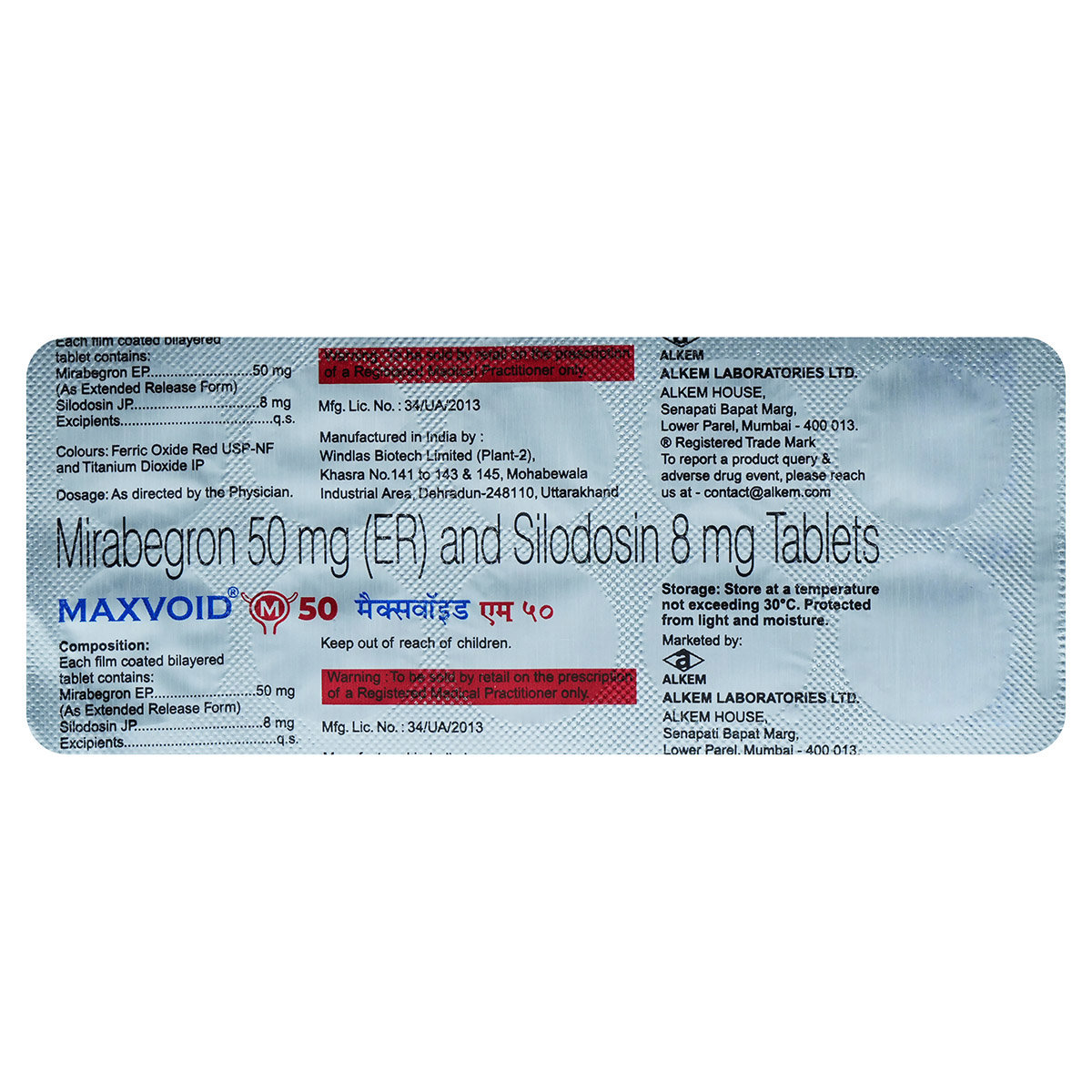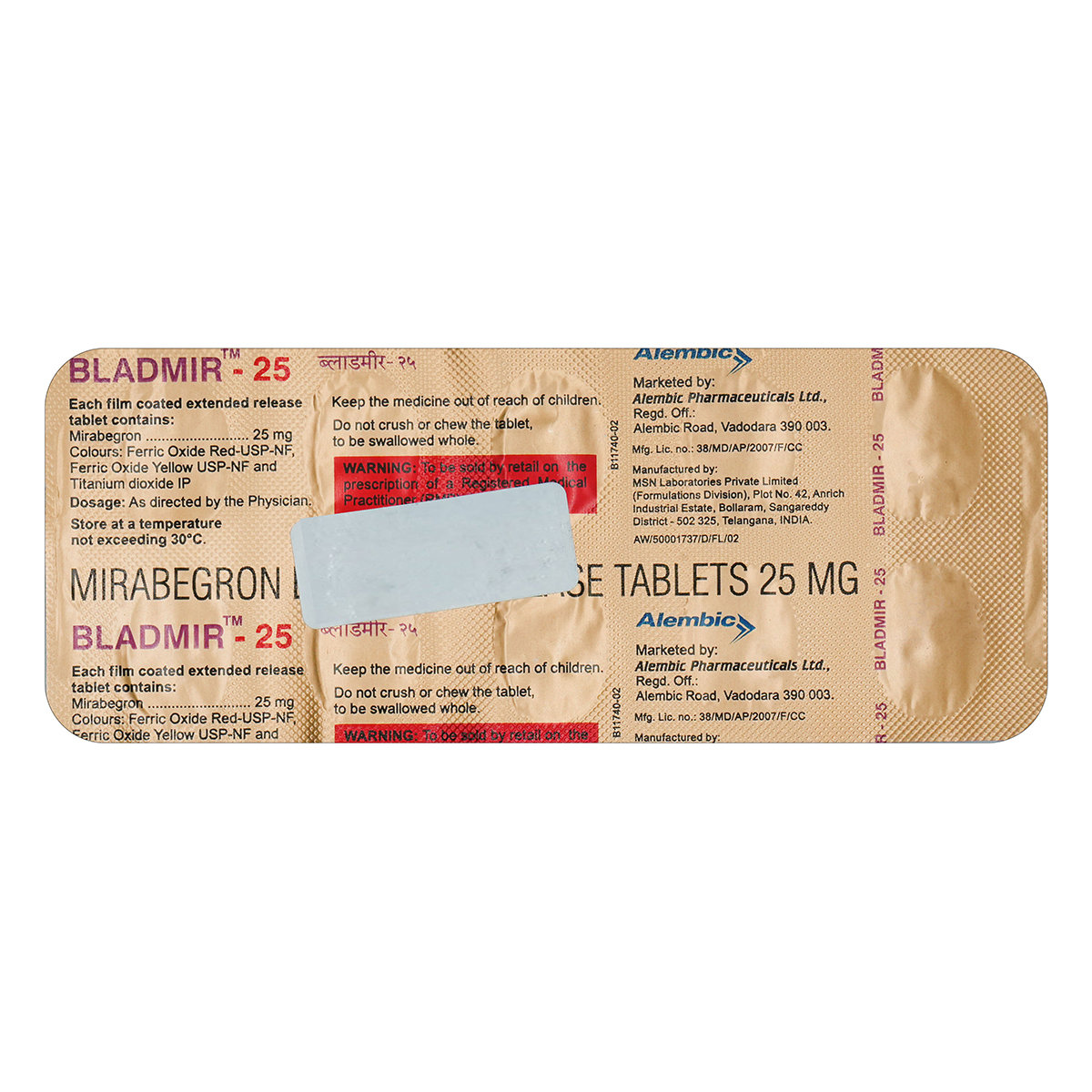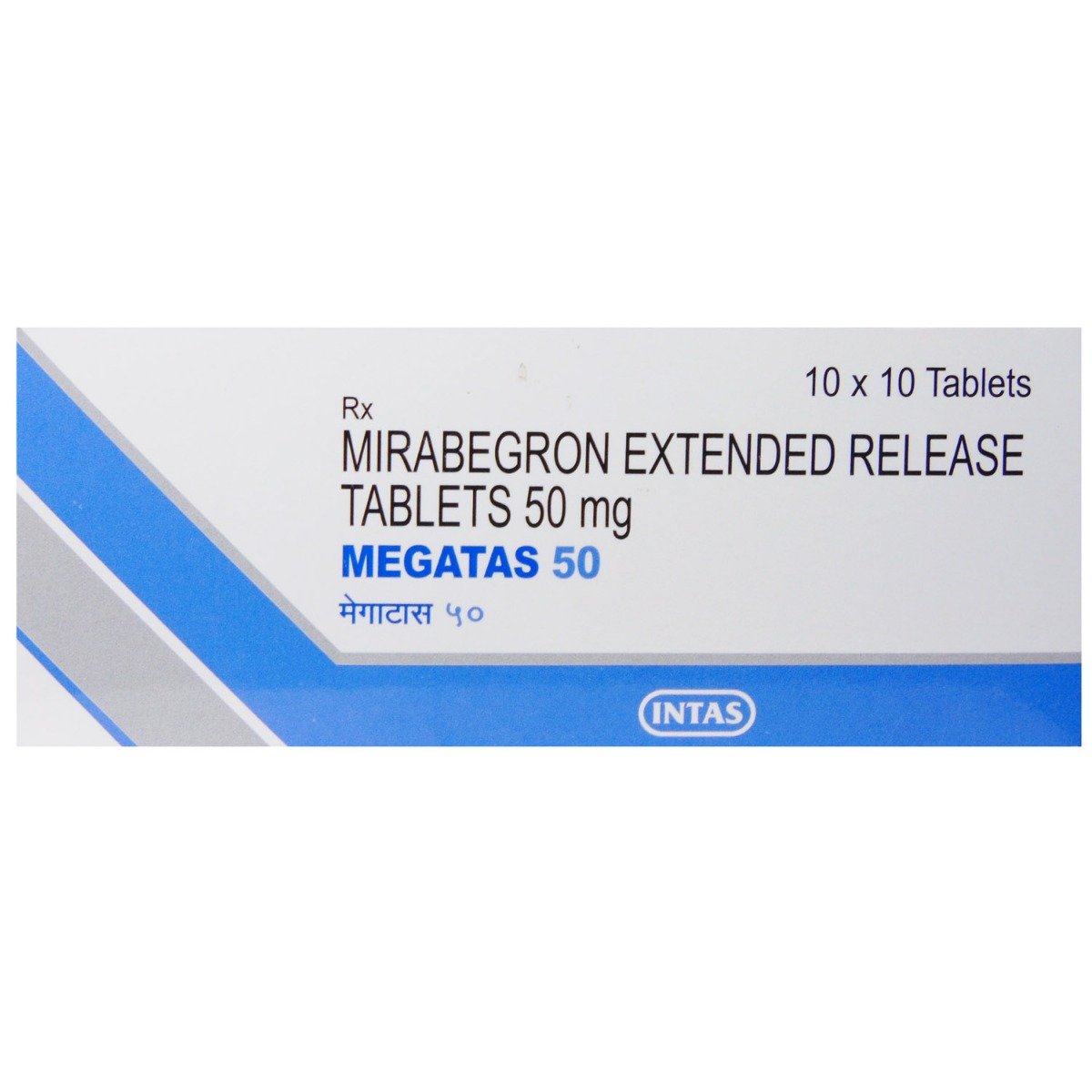Mirabegron
About Mirabegron
Mirabegron is primarily used to treat overactive bladder (OAB) symptoms. Overactive bladder is a condition in which the urinary bladder muscles constrict uncontrollably, thereby causing an urgent need to urinate, frequent urination, and an inability to control urination.
Mirabegron contains ‘mirabegron’ that relaxes the urinary bladder muscles, which in turn decreases the activity of the overactive bladder. Mirabegron stops these sudden contractions of urinary bladder muscles, thereby enabling control over urination.
In some cases, Mirabegron may cause common side effects such as nausea, constipation, diarrhoea, headache, dizziness, and increased heart rate. Most of these side effects do not require medical attention and resolve gradually over time. However, if the side effects persist or worsen, consult a doctor.
Do not take Mirabegron if you are allergic to any of its ingredients. Before taking Mirabegron, inform your doctor if you have kidney disease, liver disease, hypertension, urinary retention, angioedema, or a history of heart rhythm problems (including QT prolongation). Consult your doctor if you are pregnant or breastfeeding.
Uses of Mirabegron
Medicinal Benefits
- Mirabegron contains 'mirabegron', which belongs to the class of medications called 'anticholinergics'.
- It can decrease the activity of the overactive bladder.
- In an overactive bladder, muscle contractions occur before the full expansion of the bladder, causing the patient to have frequent urges to urinate.
- Mirabegron can stop these sudden contractions of the bladder muscles.
- It enables control over urination and increases the amount of urine held by your bladder.
Directions for Use
- Mirabegron can be taken with or without food.
- It is usually taken once daily or as prescribed by your doctor.
- Swallow Mirabegron as a whole with a glass of water.
- Do not crush, chew, or break it.
Storage
Side Effects of Mirabegron
- Nausea
- Constipation
- Diarrhea
- Headache
- Dizziness
- Increased heart rate
Medicines Containing this Salt
View AllDrug Warnings
- Do not take Mirabegron if you are allergic to any ingredients present in it.
- Before taking Mirabegron, inform your doctor if you have kidney disease, liver disease, hypertension, urinary retention, angioedema, or a history of heart rhythm problems (including QT prolongation).
- Consult your doctor if you are pregnant or breastfeeding. Avoid driving or operating heavy machinery, as this medicine may cause dizziness.
Drug Interactions
Drug-Drug Interactions: Mirabegron may interact with other antifungal drugs (ketoconazole and itraconazole), antihypertensives (carvedilol, metoprolol), antacids (brexpiprazole), anti-psychotics (pimozide, thioridazine), anti-allergic (chlorpheniramine), anti-tussive (dextromethorphan), blood thinners (warfarin, coumadin), anti-depressants (desipramine), anti-arrhythmic (digoxin, flecainide, propafenone), drugs used to treat overactive bladder (darifenacin, fesoterodine, oxybutynin, tolterodine, trospium).
Drug-Food Interactions: Do not take grapefruit or grapefruit juice while using Mirabegron.
Drug-Disease Interactions: Mirabegron should be used with caution in patients with urinary retention (inability to urinate), heart rhythm problems (including QT prolongation), hypertension, kidney dialysis, severe liver disease, or severe kidney disease.
Drug-Drug Interactions Checker List:
Safety Advice

Alcohol
unsafeAvoid taking alcohol as it increases the risk of side effects.

Pregnancy
consult your doctorMirabegron is not recommended for use in pregnant women unless absolutely necessary. Before taking this medicine, the risks and benefits should be discussed with the doctor.

Breast Feeding
consult your doctorMirabegron is not recommended for use in breastfeeding women unless absolutely necessary. Before taking this medicine, the risks and benefits should be discussed with the doctor.

Driving
cautionThe use of this medicine may cause blurred vision or dizziness in some patients. You are advised not to perform any activities, such as driving a vehicle or operating machinery, if you experience any of these symptoms during treatment with this medicine.

Liver
cautionMirabegron should be used with caution in patients with severe liver disease. A dose adjustment of Mirabegron may be needed. Please consult your doctor. Mirabegron is not recommended for use in patients with severe liver disease.

Kidney
cautionMirabegron should be used with caution in patients with kidney disease. A dose adjustment of Mirabegron may be needed. Please consult your doctor.

Children
unsafeMirabegron should not be used in children below 12 years of age unless prescribed by a doctor.
Habit Forming
Diet & Lifestyle Advise
- Eat fresh fruits like pears, bananas, citrus fruits, and vegetables like beans and potatoes.
- Try to take cranberry juice as it helps in minimising urinary infections.
- Avoid coffee, tea, and carbonated drinks, which contain caffeine.
- Do not consume processed, fried, or spicy foods, as these can irritate your bladder.
- Limit alcohol intake as it can increase the risk of side effects.
- Quit smoking and exercise regularly.
Special Advise
- Mirabegron may raise your blood pressure. Monitor your blood pressure regularly.
Patients Concern
Disease/Condition Glossary
Overactive bladder (OAB): In normal conditions, when the urinary bladder is filled with urine, it sends a message to the brain that an individual is ready to urinate. During the urination process, bladder muscles contract, which ultimately leads to a uniform flow of urine. Contrary to this, in an overactive bladder (OAB), the urinary bladder muscles start contracting before the urine is filled in the urinary bladder, thereby causing frequent urges to urinate.
FAQs
Mirabegron belongs to the group of medications called urinary antagonists or antispasmodics primarily used in the treatment of overactive bladder (OAB) symptoms.
Mirabegron prevents sudden bladder muscle contractions and increases the volume and amount of urine the bladder can hold. Thus, Mirabegron helps to control the release of urine and helps reduce symptoms of OAB like a strong urge to urinate, frequent urination and reduced urine flow.
If you have kidney disease, liver disease, hypertension, urinary retention, angioedema, history of heart rhythm problems (including QT prolongation), please contact a doctor before taking Mirabegron.
Ketoconazole is an antifungal medicine, and it may interact with Mirabegron. So, inform your doctor about all the prescription and non-prescription medicines before taking Mirabegron to avoid unwanted effects.
Mirabegron should be used with caution in patients with high blood pressure due to the increased risk of worsening the patient's condition. It is not recommended for use in patients with severe uncontrolled hypertension. Regular blood pressure monitoring, appropriate dose adjustments or replacement with a suitable alternative may be required in some cases based on the clinical condition.
Mirabegron may cause side effects such as nausea, headache, diarrhea, constipation, increased heart rate and dizziness. If these side effects persist or worsen, please consult your doctor.
No, Mirabegron is not recommended for children as the safety and effectiveness were not established.
No, Mirabegron is not known to cause an addiction. However, it should be taken in the dose and for duration as prescribed by your doctor.
Mirabegron should be taken for as long as it is advised by the doctor. Follow all the instructions and do not discontinue taking Mirabegron on your own.
It might take 8 weeks or more for Mirabegron to show its full benefits. After 4 to 8 weeks, the dosage might be increased based on how well the medicine suits and affects the patient.
No, do not stop taking Mirabegron even if you start feeling better as it does not cure overactive bladder but relieves the symptoms of urgency, frequency and incontinence (unable to control when you empty your bladder). Discontinuing Mirabegron may result in a recurrence of the overactive bladder symptoms.
No, Mirabegron does not affect sleep. However, if you have any sleep related problems, consult your doctor.
No, you are recommended to take Mirabegron daily as advised by your doctor as it controls your condition and does not cure it. Since your bladder takes time to adapt to the medicine, if you take it off and on, you will not get the desired benefits and your symptoms will recur.
Mirabegron may cause side effects such as infection of kidneys, urinary bladder, ureters, or urethra but does not affect everyone. Mirabegron has been associated with very few reports of developing bladder pain and kidney stones. Also, patients with compromised kidney function should be careful while using Mirabegron and in case of any unwanted symptoms related to kidneys, inform your doctor.
If you accidentally take more than the required dose of Mirabegron, seek medical help immediately even if you do not feel any discomfort. Overdose of Mirabegron may increase your blood pressure and pulse rate resulting in severe headache, chest pain, palpitations and fatigue.

